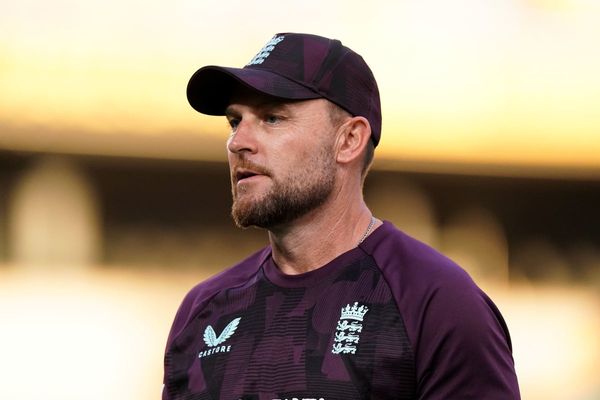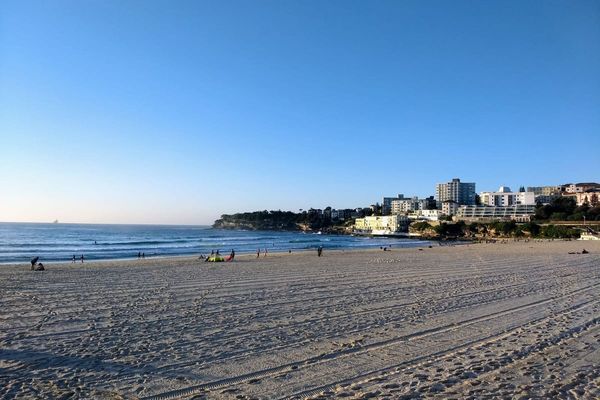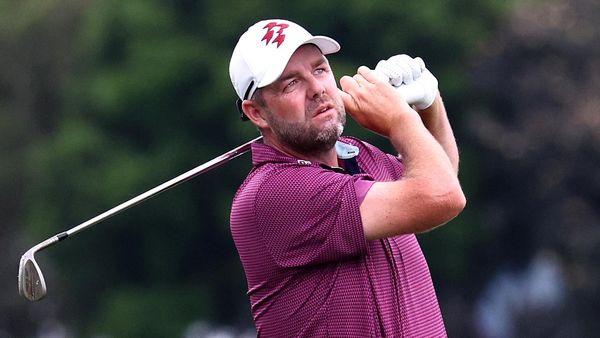
In the Horn of Africa, drought, global price rises, conflict and the extreme weather brought on by the climate crisis have converged to create an almost unprecedented situation. According to the UN, the current drought in the region has already killed an estimated 9.5 million animals and tipped 26 million people into food insecurity, surpassing in both intensity and duration the droughts of 2010-11 and 2016-2017. After the failure of multiple rainy seasons in Kenya, the land is dry, crop production has fallen and livestock are dying.
As part of its response, the Kenya Red Cross has supported more than 215,000 people in the country, and is working to help 500,000 more in the worst affected communities. As well as connecting people to water, it has worked with farmers to grow drought-tolerant crops or diversify into other livelihoods – the latter of the utmost necessity given the speed at which the climate crisis is destroying the viability of agriculture.
Caleb Kibet, a county coordinator for the Kenya Red Cross, says the long-term strategy is to support the region with risk-reduction interventions, so farmers are shown how to irrigate the land rather than rely on rainfall and community groups are trained to anticipate, prepare for and respond to disasters such as prolonged drought or flooding.
“We’ve seen a significant change in terms of community preparedness and a shift to alternative livelihoods,” says Kibet. “Of course, when it comes to drought issues, we have the displacement of populations in search of resources such as pasture and water. So we also need to ensure that they can access essential services along the way.”
Improving the lives of farmers
Life has improved for Kizaro, a farmer in Taita-Taveta county, which is located in the Tsavo East and Tsavo West national parks, north-west of Mombasa. Thanks to funds raised by players of People’s Postcode Lottery, he’s been part of the Red Cross’s integrated food security project, which has worked with hundreds of farmers to provide seeds, fertiliser, pesticides, and training on post-harvest management. The Red Cross has also linked Kizaro to a cooperative, which guarantees a set price for his grain, and provides a regular supply of seed and access to loans. He is now able to hire people and has grain to sell and to eat, thanks partly to practices he has been implementing that can improve crop yields.
“I have learned a lot from the Red Cross, especially on spacing and planting,” he says. Kizaro still faces many challenges, but he can now meet the costs for his children’s education. “When I used to not be able to afford school fees, I would ask the headmaster to wait for months, so I could pay after the harvest. Now I am part of the cooperative, I am not worried.”

Connecting communities to water
Elsewhere in Taita-Taveta, a Red Cross project has connected more than 17,000 people to water. Supported with funds raised by players of People’s Postcode Lottery and the British Red Cross’s Di Moody Fund, it’s a life-changing intervention for the community – many of whom used to travel as far as Tanzania to collect water or were forced to pay extortionate prices to motorcycle vendors. There’s now time to do other things, and money to send their children to school.
“Players of People’s Postcode Lottery have raised more than £13.5m for the British Red Cross over the past 10 years,” says Laura Chow, head of charities at People’s Postcode Lottery. “Player funding makes a difference on a big scale, like the 17,000 people living in Taita-Taveta who now have access to clean water. It also makes a difference to individuals like Kizaro, who can now afford to send his children to school. I am so pleased that funds raised by players will continue to help the British Red Cross support people across Britain and internationally in times of crises.”
James Kuria, the water project manager at the Kenya Red Cross, says the children describe the project as a miracle. “They could not believe they were turning taps and the water was flowing. It’s like a dream to them.”
Joram Oranga, the county coordinator for Taita-Taveta, hopes there will be more Red Cross water projects in the future. He’s been with the Kenya Red Cross for six years and, in his experience, the drought situation has never been this bad. “The number of people who are dependent on relief has increased a lot. We’re trying to develop the capacity to identify and respond to their needs in real time.”
Providing mobile health clinics
Chepotitiowa is a mother of eight from East Pokot, which lies in the north of Baringo county, around 200 miles from Nairobi. She has already lost most of her livestock and struggles to feed her children. The situation means she has little choice but to collect water from a nearby hand-dug borehole, which is several metres deep. It’s a dangerous endeavour – people in the region have been buried alive by collapsing boreholes as they’re forced to dig deeper and deeper to find water.
“It’s like you’re entering a dark cave, or the house of a wild animal,” says Chepotitiowa. “You get really scared but you don’t have another option because you have to get the water.” She and her children live a nomadic lifestyle, migrating to look for water and food. They are all at risk of malnutrition and she worries about whether she’ll be able to reach a health facility if one of the children falls ill.
To support people such as Chepotitiowa, the Kenya Red Cross is restructuring community water points and boreholes that pose a risk, and operating mobile health clinics that travel to some of the most remote communities.

Nelly is one of the nurses working with the Kenya Red Cross as part of a mobile health clinic. Every two weeks she sits in the shade of a giant acacia tree, caring for the mothers and children who come to receive treatment, vaccinations and nutrition services. “Sometimes people walk for 10km or farther to reach a health facility and find that very difficult,” she says. “The biggest problem is hunger, most are in hunger. You will find mothers who have not taken anything in almost three days. The Red Cross is sustaining this community.”
But the Kenya Red Cross by no means limits itself to the direct provision of the in-kind basic needs such as food, water, and medical care. It has also given assistance through cash to more than 20,000 families hit by recent emergencies. The humanitarian organisation often prefers the use of cash assistance, says Andra Gulei, cash adviser at the British Red Cross, because it gives those living in the aftermath of a disaster freedom of choice and the ability to prioritise their varied needs. “Using cash assistance respects the dignity of people to buy what they need to get their lives back on track,” says Gulei.
For Oranga, the hardest thing about his job is realising you can’t help everyone. “This is the biggest challenge. There’s quite a lot we’re not able to do yet, maybe because of the design of the projects we have, or because of funding. But we hope there will be a knock-on effect for the wider community, and we are using the farmers we are supporting as models for others to learn from.”
For Kibet, up in Baringo county, the most successful interventions take place in partnership with the affected communities. “We’ve learned a lot from community-driven solutions,” he says. “Appreciating a community’s strengths based on its culture has been helpful in many different initiatives, it as has allowed members of the community to be the champions to advocate for behaviour change.”
It’s a challenging job but one he feels privileged to do: “Serving humanity, making sure someone is supported with their basic needs such as food, water, health services … that always touches my heart.”
Here for humanity
Getting people through this devastating food crisis starts with you. Red Cross teams are on the ground to support communities and provide vital relief. Together, with your help, we are the world’s emergency responders. Please donate to the British Red Cross today

The British Red Cross Society, incorporated by Royal Charter 1908, is a charity registered in England and Wales (220949), Scotland (SC037738), Isle of Man (0752) and Jersey (430).







